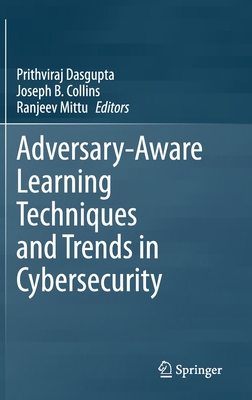Machine Learning Safety
Huang, Xiaowei, Jin, Gaojie, Ruan, Wenjie
- 出版商: Springer
- 出版日期: 2024-05-17
- 售價: $2,180
- 貴賓價: 9.5 折 $2,071
- 語言: 英文
- 頁數: 321
- 裝訂: Quality Paper - also called trade paper
- ISBN: 9811968160
- ISBN-13: 9789811968167
-
相關分類:
Machine Learning
海外代購書籍(需單獨結帳)
相關主題
商品描述
The book aims to improve readers' awareness of the potential safety issues regarding machine learning models. In addition, it includes up-to-date techniques for dealing with these issues, equipping readers with not only technical knowledge but also hands-on practical skills.
商品描述(中文翻譯)
機器學習演算法使得電腦能夠在不需要明確編程的情況下進行學習。它們的應用現在已經擴展到多個領域中的高度複雜任務,例如醫學診斷或完全自主的車輛。儘管這一發展具有巨大的潛力,但也引發了新的安全擔憂,因為機器學習具有許多特殊性,使得其行為預測和評估與明確編程的軟件系統非常不同。本書解決了關於機器學習的主要安全擔憂,包括其對環境噪音和對抗性攻擊的敏感性。這些弱點已成為在安全關鍵應用中部署機器學習的主要障礙。本書介紹了最新的對抗性攻擊技術,用於評估機器學習模型的弱點;形式驗證,用於確定訓練過的機器學習模型是否沒有弱點;以及對抗性訓練,用於增強訓練過程並減少弱點。
本書旨在提高讀者對機器學習模型潛在安全問題的認識。此外,它還包括處理這些問題的最新技術,使讀者不僅具備技術知識,還具備實踐技能。
作者簡介
Wenjie Ruan is a Senior Lecturer of Data Science at the University of Exeter, UK. His research interests lie in the adversarial robustness of deep neural networks, and in machine learning and its applications in safety-critical systems, including health data analytics and human-centered computing. His series of research works on Device-free Human Localization and Activity Recognition for Supporting the Independent Living of the Elderly garnered him a Doctoral Thesis Excellence Award from the University of Adelaide, Best Research Poster Award at the 9th ACM International Workshop on IoT and Cloud Computing, and Best Student Paper Award at the 14th International Conference on Advanced Data Mining and Applications. He was also the recipient of a prestigious DECRA fellowship from the Australian Research Council. Dr. Ruan has published more than 40 papers in international conference proceedings such as AAAI, IJCAI, SIGIR, WWW, ICDM, UbiComp, CIKM, and ASE. Dr. Ruan has served as a senior PC, PC member or invited reviewer for over 10 international conferences, including IJCAI, AAAI, ICML, NeurIPS, CVPR, ICCV, AAMAS, ECML-PKDD, etc. He is the Director of the Exeter Trustworthy AI Lab at the University of Exeter.
作者簡介(中文翻譯)
黃小偉目前是利物浦大學(UoL)計算機科學的讀者和自主性智能系統實驗室的主任。他的研究涉及開發自動驗證技術,以確保智能系統的正確性和可靠性。他已發表了80多篇論文,主要刊登在人工智能(例如人工智能期刊、ACM計算邏輯交易、NeurIPS、AAAI、IJCAI、ECCV等)領域的領先會議論文集和期刊上,以及形式驗證(例如CAV、TACAS和理論計算機科學)和軟件工程(例如IEEE可靠性交易、ICSE和ASE)領域。他曾應邀在多個領先會議上發表演講,討論與將機器學習算法應用於關鍵應用的安全性和安全性相關的主題。他曾共同主持AAAI和IJCAI關於人工智能安全的研討會系列,並擔任過幾個Dstl(英國國防部)、EPSRC和EU H2020項目的PI或共同PI。他是利物浦大學自主性智能物理系統實驗室的主任。
阮文杰是英國埃克塞特大學數據科學的高級講師。他的研究興趣包括深度神經網絡的對抗韌性,以及機器學習及其在安全關鍵系統中的應用,包括健康數據分析和以人為中心的計算。他在無設備人體定位和活動識別支持老年人獨立生活方面的一系列研究工作獲得了阿德萊德大學的博士論文卓越獎,第9屆ACM國際物聯網和雲計算研討會的最佳研究海報獎,以及第14屆國際高級數據挖掘和應用研討會的最佳學生論文獎。他還獲得了澳大利亞研究委員會的著名DECRA研究員獎。阮博士在國際會議論文集(如AAAI、IJCAI、SIGIR、WWW、ICDM、UbiComp、CIKM和ASE)上發表了40多篇論文。阮博士曾擔任過10多個國際會議的高級PC、PC成員或邀請評審,包括IJCAI、AAAI、ICML、NeurIPS、CVPR、ICCV、AAMAS、ECML-PKDD等。他是埃克塞特大學可信人工智能實驗室的主任。











